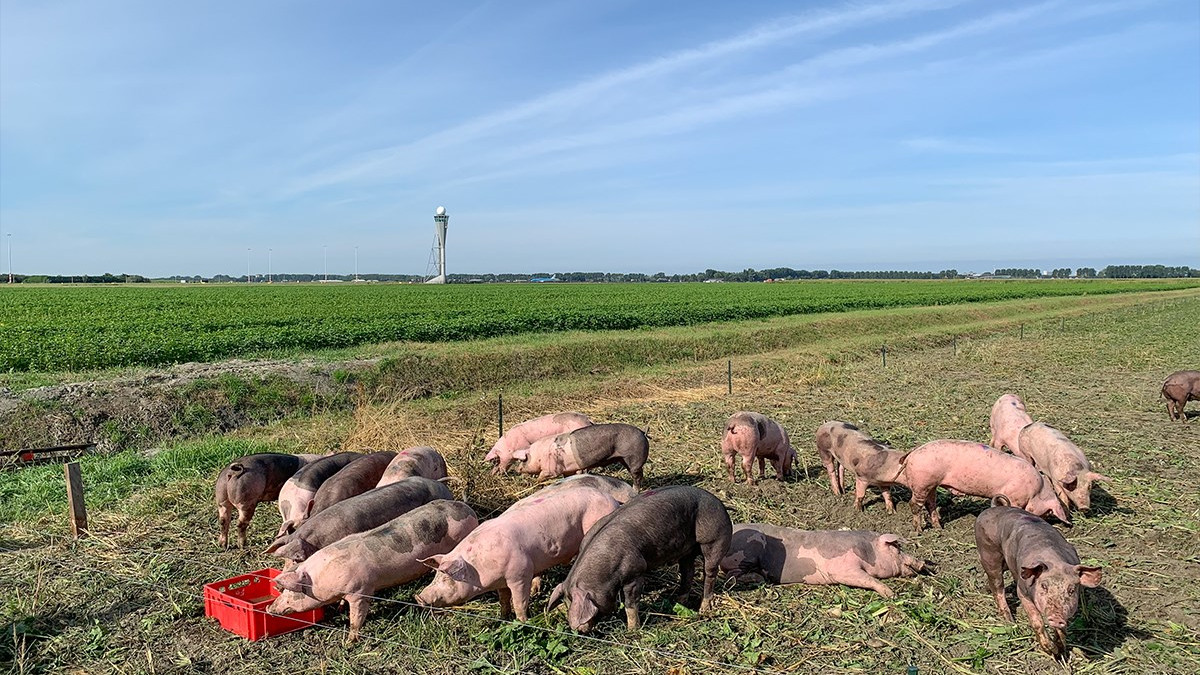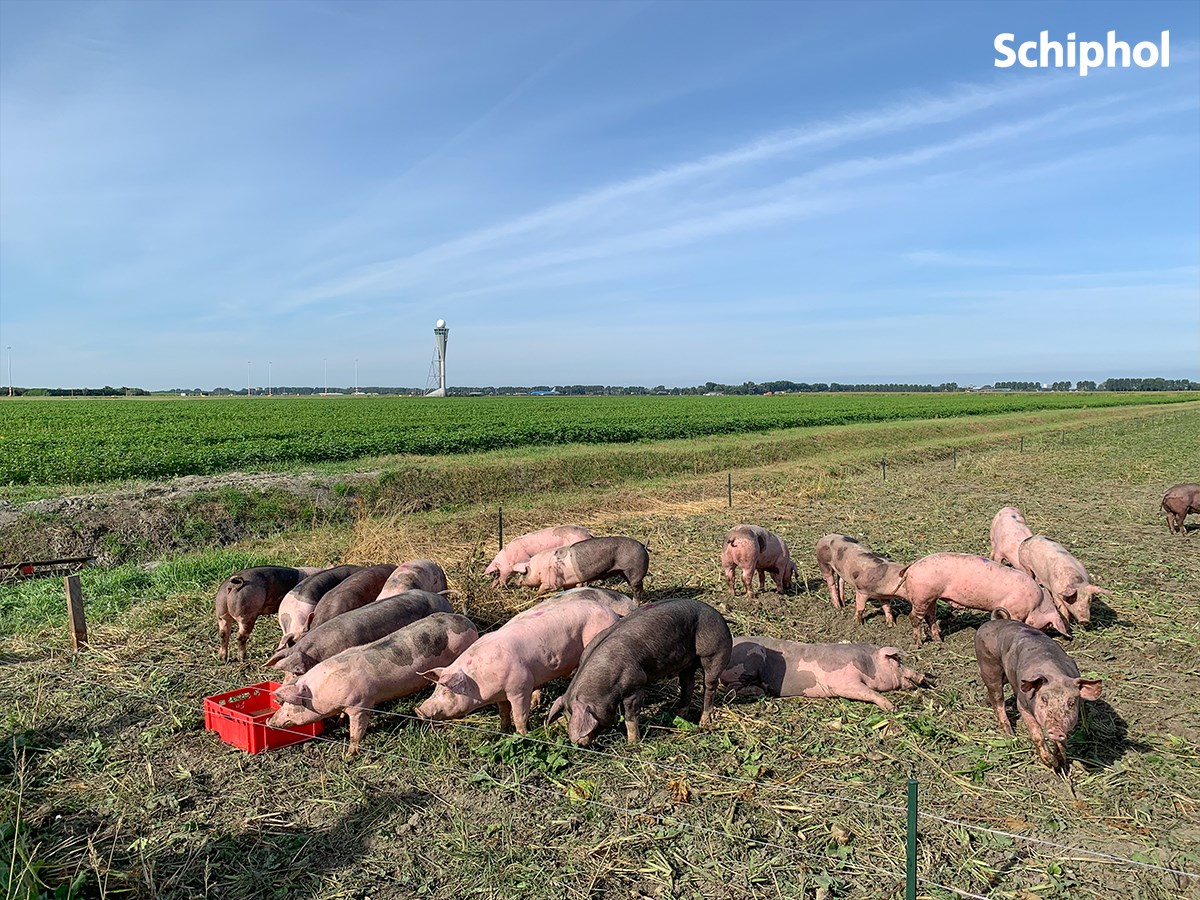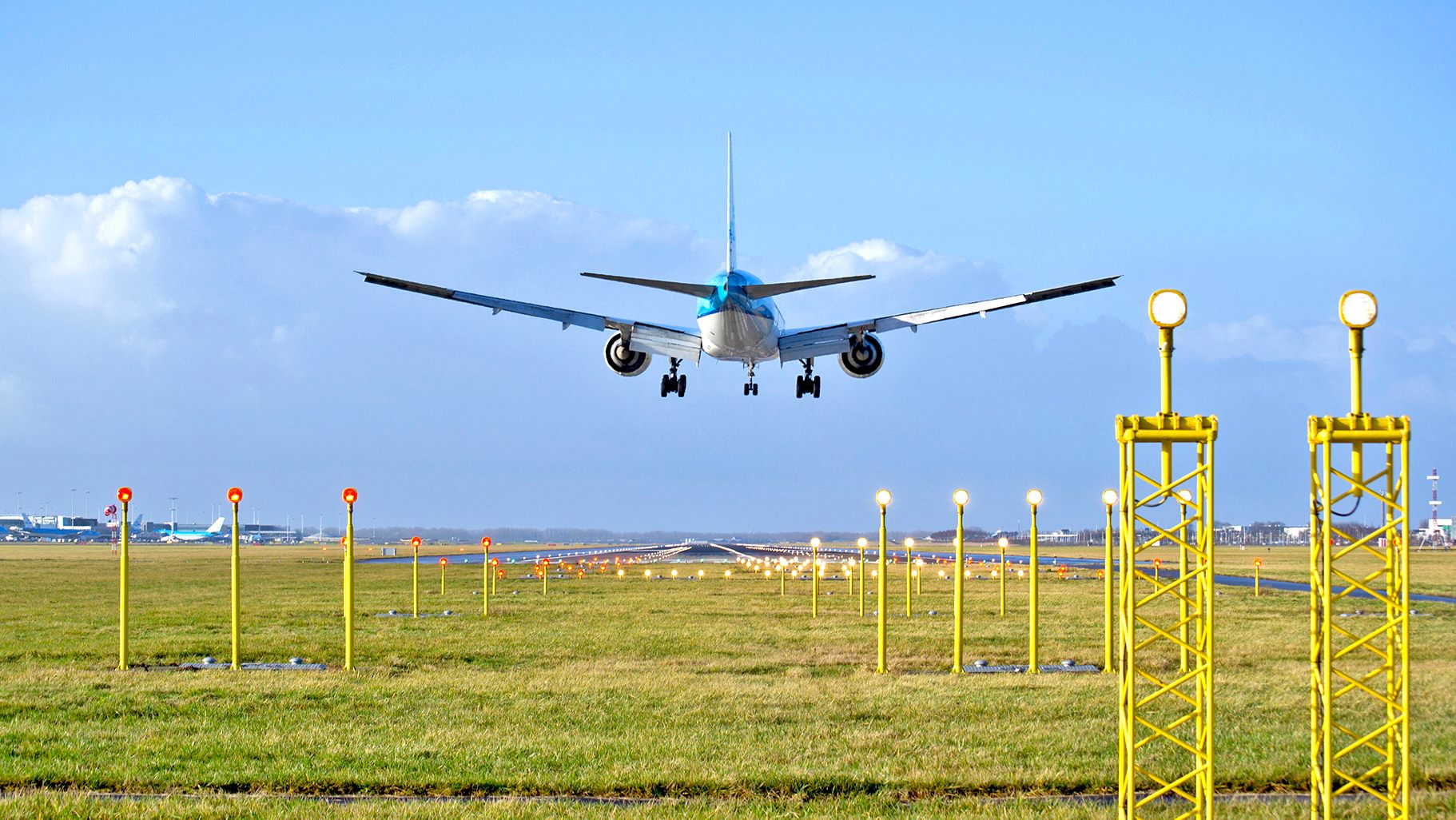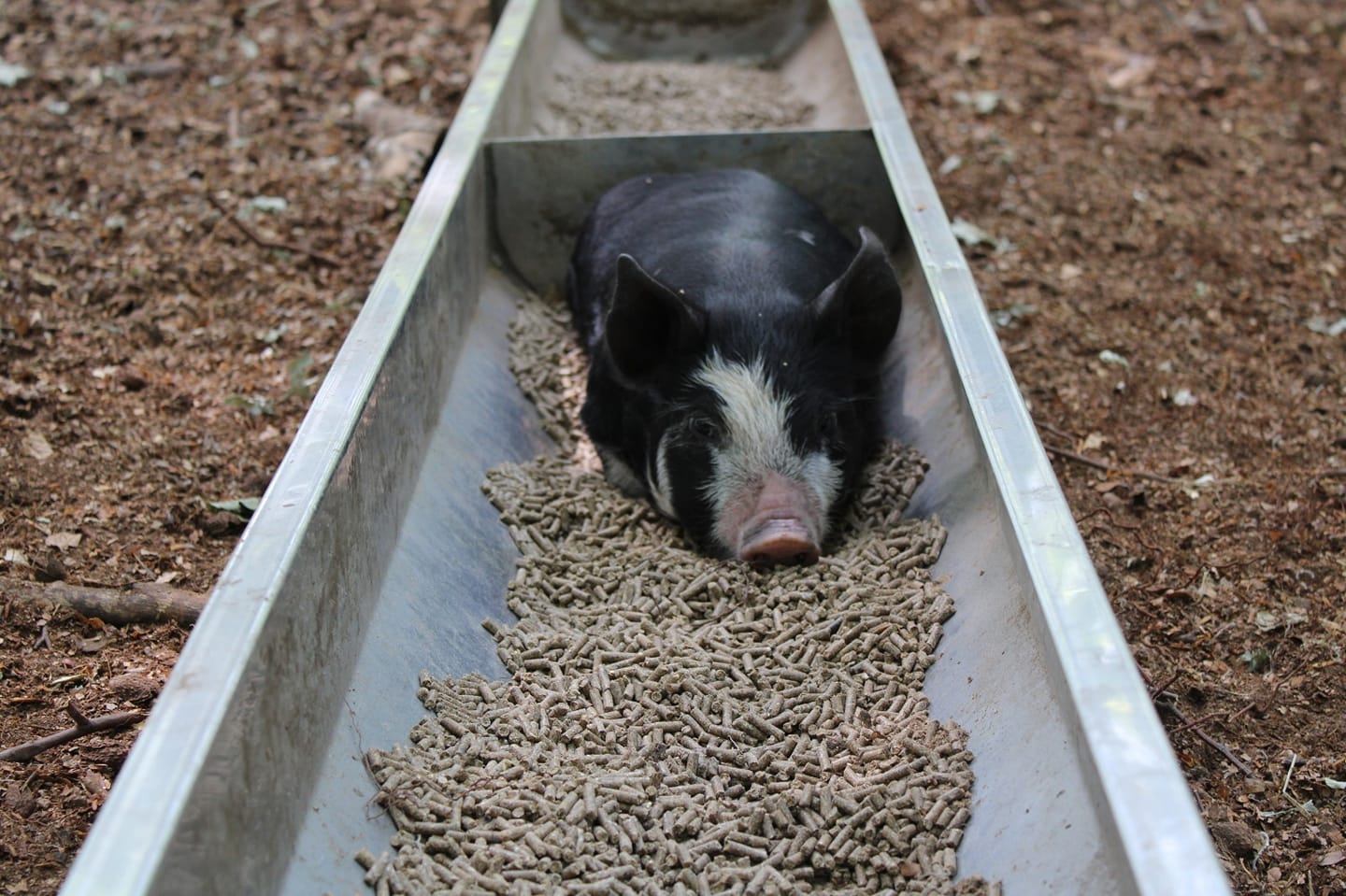
- Inspiring People -
- 4mins -
- 593 views
Can pigs fly? Perhaps not, but this porcine pack keep the skies safe for those who can
A herd of 20 pigs have been deployed at Amsterdam’s Schiphol airport as part of a range of measures being used to reduce bird-strikes.
Amsterdam’s Schiphol uses pigs to keep birds away
Last month, a trial started around Amsterdam’s Schiphol to investigate whether pigs can help keep geese away from the airport’s runways, among other measures aimed at reducing bird-strikes.

Schiphol’s pig pilot scheme… wait, what?
The twenty pigs with which the research is being carried out reside on a plot of two hectares, between the Polderbaan (18R/36L) and the Zwanenburgbaan (18C/36C). Sugar beets were recently harvested there, and the harvest residues normally have an attractive effect on birds.
In the coming weeks, the bird activity in the area with the pigs will be compared with another plot where no pigs reside. Success is assessed on the basis of a special bird radar that maps out where birds fly for the entire Schiphol area and visual observations.
To keep flight safety as optimal as possible, Schiphol is already taking various structural measures to keep birds away from the aircraft. At the airport, bird activity is monitored by 20 so-called ‘bird controllers’. They are in the runway 24 hours a day to chase the birds away from the runways.
This is done with different techniques, ranging from special sounds to the use of laser beams. Furthermore, the take-off and landing area is made as unattractive as possible for birds, among other things by using special grass species. If the birds are in the path of an aircraft, a bird strike can take place.
Source: Upinthesky.nl

Schiphol drafts in 20 pigs to keep the geese away from runways
In total, 20 pigs have been moved to former sugar beet fields between two of the airport’s runways and officials hope they will eat the harvest leftovers before the birds move in.
The pigs have almost two kilometres of farmland to roam. To find out how many birds the pigs scare away, a second area of similar size will be left alone and the coming weeks, bird activity in the area with the pigs will be compared to the reference plot.
The success of the project will be measured using a special bird radar which will map the areas at Schiphol and its surroundings that are frequented most by birds, along with visual observations, the airport told DutchNews.nl.
Twenty bird controllers are currently keeping track of bird activity at the airport and work throughout the airfield to keep the birds away round the clock, using technology varying from special sounds to laser beams.
Other measures are also in place to keep the airfield as unappealing as possible for birds such using special types of grass. Mass culls of geese have also been carried out.
Nevertheless, every year there are dozens of ‘bird strikes’, involving collisions between planes and geese. In 2018, 6.6 bird strikes were recorded per 10,000 air transport movements, Schiphol said.
The pigs are owned by pig farm Buitengewone Varkens (Extraordinary Pigs), which provides porcine help to landowners who want to manage their woods and fields without using artificial aids The pigs will end up being killed for food.
Source: DutchNews.nl

Twenty bird controllers are currently keeping track of bird activity at the airport and work throughout the airfield to keep the birds away round the clock, using technology varying from special sounds to laser beams. Source: Facebook/Schiphol



